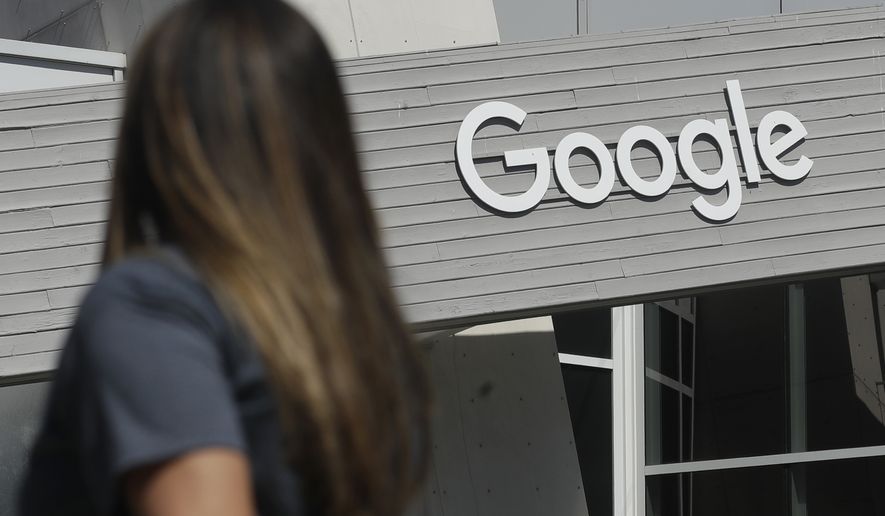OPINION:
There is a line of dialogue in the classic 1980s movie “The Three Amigos” that seems to bear on the many epic intellectual property rights cases Google currently finds itself fighting.
“If you want a woman, you take the woman,” says Jefe to El Guapo, the movie’s villain.
In real life, the villain appears to be Google. If it wants your IP, it seems to have no problem taking your IP.
Both seem to give off the bully impression — El Guapo relies on force to take what he wants, Google ostensibly relies on its deep pockets and ability to threaten endlessly expensive litigation to get its victims to write off its losses.
Take the case that’s escalated in recent weeks between Google and Sonos, the manufacturer of wireless and smart home audio systems.
Sonos claims that Google snatched its wireless/smart speaker technology while the two companies worked together to develop speakers that would support Google Play Music. Google bowed out — and then bowed back in, with its own very similar product line (the Google Home Max and Home Mini), which it allegedly put on the market at a lower price, seemingly to undercut Sonos.
“Google has been blatantly and knowingly copying our patented technology in creating its audio products,” Sonos CEO Patrick Spence said in a statement. “Despite our repeated and extensive efforts over the last few years, Google has not shown any willingness to work with us on a mutually beneficial solution.”
Sonos sued. Google seemed to respond by using its vast resources to forum shop. Lawyers use this inside baseball term to describe the practice of filing as much paperwork as it takes, no matter how much it costs, to find a court or judge that will look favorably on their case.
The idea is to let the example serve as a warning to any future victims of IP theft about just how expensive it can be to recover what was stolen.
This issue is also in play for the Google v. Oracle case currently before the U.S. Supreme Court, which has huge implications for IP law and the future of Google’s legal strategy.
After asking the codings’ owner (now Google but then Sun Microsystems) for licensing terms. Google used over 11,000 lines from its programming language, JAVA, without compensation. Google appeared to decide it would be cheaper to just take what it wanted and then argue that the coding belongs to everyone, like the sunshine.
This is cynically styled “efficient infringement” by its practitioners. Take first, litigate later.
Si, el Guapo!
It’s not just Sonos and Oracle that have seemed to fall victim to Google’s predatory practices, either.
The American Association of Publishers sued Google over the latter’s practice of posting excerpts of copyrighted books on its Google Library Project without permission of the copyright holder and no payment made for the commercial use of other people’s work product. Writers and publishers are especially vulnerable to the taking of their work product because the Internet makes it so easy.
Just copy and paste. Then profit.
But wait, there’s more:
Back in 2011, Google was accused of lifting PayPal’s trade secrets to create a suspiciously similar payment app, Google Wallet. Prior to the launch of the Google app, Google negotiated with PayPal to provide the underlying technology — just not for free. Instead of paying PayPal, Google walked away from the cooperative development deal and then launched its own version of the same thing — using two ex-PayPal developers to make the grand reveal.
It reminds one of another classic movie, “Coming to America” with Eddie Murphy. In that one, there is a McDowell’s restaurant that looks an awful lot like McDonald’s, down to the almost golden archers, and the Big Mick rather than the Big Mac.
It was hilarious in the movie, but not so much in real life, if you’re the one getting ripped off.
Google has even gone so far as to appear to cash in on other companies’ trademarked names, including American Airlines, Geico and Rosetta Stone. The tech giant was accused of selling these trademarked names to third-party advertisers as keywords in advertisements for competing companies and their products.
How’s that Big Mick taste?
The movie company Viacom also sued Google over its publishing of copyrighted videos, including full-length feature films, on its YouTube subsidiary, also without permission or compensation.
At least in the Google v. Oracle case, the Supreme Court may finally provide Google with the legal spanking that it has seemed to deserve for quite some time. Maybe its ruling will turn Google’s Hyde into Jekyll. Maybe it won’t. In any event, the time for justice is now.
• Matt Mackowiak is president of Potomac Strategy Group, LLC. He’s a Republican consultant, a Bush administration and Bush-Cheney reelection campaign veteran and former press secretary to two U.S. senators.




Please read our comment policy before commenting.